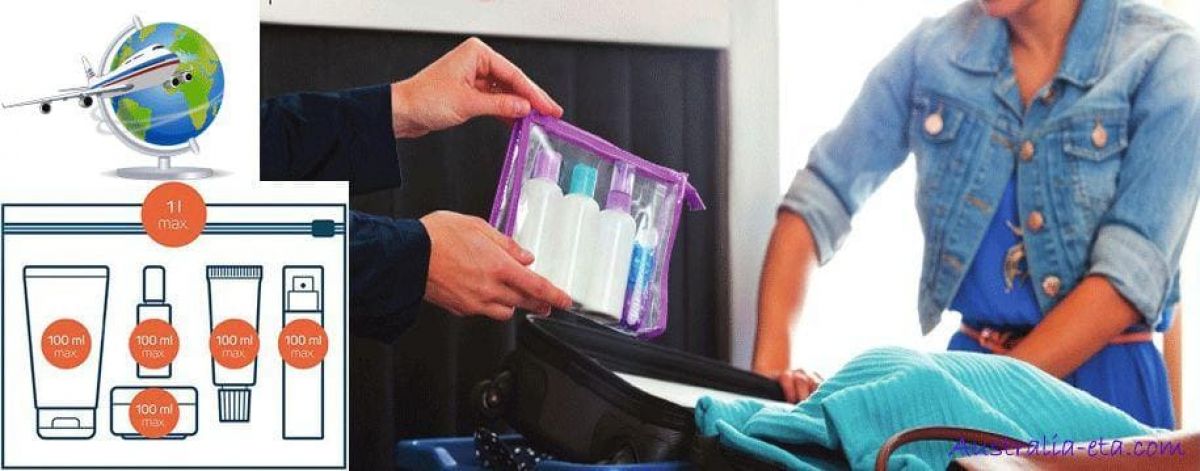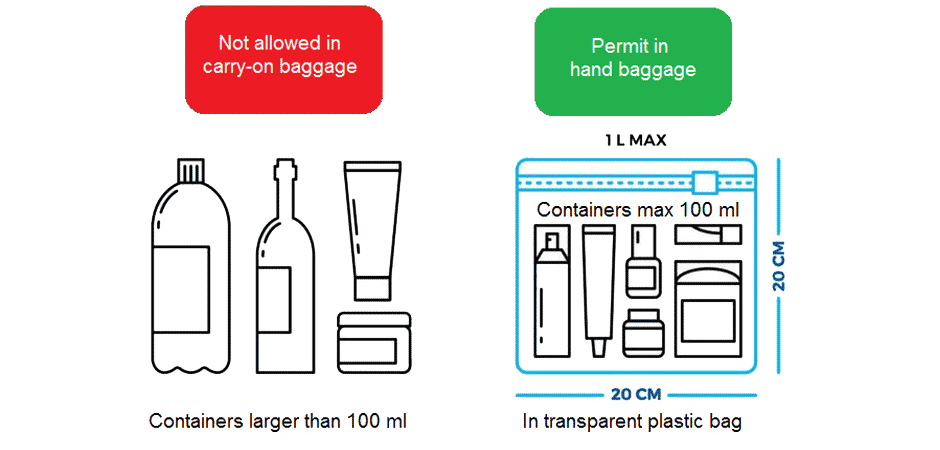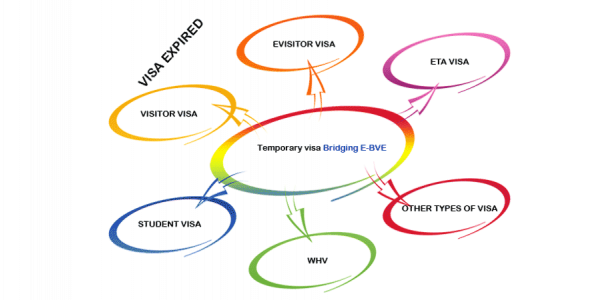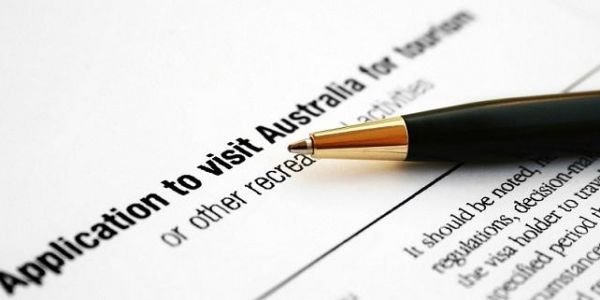The rule of liquids in hand baggage

Travel to Australia: Transport of liquids in your hand baggage
Ten years has spent since very restrictive rules were introduced regarding the transport of liquids in hand baggage. There is still some confusion among travelers about the types of liquids and powders and the quantities that can be introduced in the carry-on baggage. Here is a practical guide to know what liquids can be carried in your hand baggage when you need to take a plane to and from Australian airports in general, with all exceptions. It is good to make a small premise: the rules relating to the transportation of liquids, for the most part, are common for all nations, except for some small differences, in relation to international flights.
Fly to Australia
First of all, it is good to remember that to enter in Australian territory you need an visa for Australia online, whether you travel for tourist reasons or for work reasons. There are several variations of the tourist visa that differ according to the applicant's citizenship. If the traveler has european citizenship, he can apply for eVisitor. It is a tourist visa that allows you to stay in Australia for a maximum period of 3 months and is valid for 1 year. If the traveler is an American or Canadian citizen, the visa to be applied for is ETA australian visa, which also has a duration of 1 year with a 3-month stay.
The rules to be respected for the transport of liquids
International flights : The Australian government limits the amount of liquids, aerosols, gels and some powders that can be carried in carry-on baggage on international flights. These restrictions do not apply to checked and stowed baggage. These restrictions apply if the passenger is:
- leaving the Australian territory to return to its country of origin.
- transiting through Australian airports with destination to other countries
- traveling on a domestic route departing from an Australian international terminal, such as passengers departing from Sydney International Airport on a flight to Melbourne.
The restrictions on liquids are applied rigorously even if the passenger arrives in Australia on an international flight. Security officers always have the last word and, if in doubt about the type of liquid transported, they can decide to deny authorization to board the property in question and retain the offending container.
Local flights : Internal flights to the Australian territory are not subject to restrictions on the amount of dust, liquids, aerosols and gels that can be carried on board in carry-on baggage. However, if you depart from an international airport to a foreign destination, (for example, from Terminal 1 to Sydney or Terminal 2 to Melbourne, the boarding pass will confirm if you are leaving from an international terminal) you are subject to restrictions for liquids, dust, aerosols and gels.
What is meant by powders, liquids, aerosols and gels?
According to international treaties, the descriptions for the various categories are:
- Liquid: considered as such if it maintains its liquid nature when it is at room temperature.
- Aerosol: substance that is sprayed and contained in a container under pressure
- Gel: gelatinous substance, for example creams or ointments
- Powders: dry particles in powder resulting from products of grinding, crushing or disintegration of a solid substance (eg flour, sugar, coffee, spices, milk powder, artificial milk or cosmetics). The powders may also be presented in lump, grain or compressed material forms.
What are the quantitative restrictions for liquids, aerosols and gels?

Liquids, aerosols and gels:
- Liquid items, aerosols or gels must be transported in carry-on baggage, in containers each having a capacity of 100 millilitres or approximately 100 grams of weight.
- The containers must be contained in a transparent and resealable plastic bag.
- The four sides of the sealed area of the envelope must have a dimension of 20x20 cm or 15x25 cm and the total amount of liquid carried in the bag must not exceed 1 litre.
- A single bag per passenger is allowed, with exceptions for carers who can carry the baggage for the persons entrusted to them, including children.
Containers larger than 100 millilitres or 100 grams, even if only partially filled and containing liquids, aerosols or gels will not be admitted through the security checkpoint and will be confiscated. For example, a half-full 200-gram tube of toothpaste will not be allowed. At the checkpoint, all liquids, aerosols and gels in hand baggage must be presented separately for screening.
Examples of liquids, aerosols and gels :
Liquids : Perfume, Shampoo, Mouthwash, Oils, Sauces, Soups, Salad Dressing, Non-Alcoholic Drinks, Fruit Juice, Bottled Water, Canned Food High in Liquids (eg Tuna), Creams, Liquors, Wine, Beer
Aerosol : Deodorant, Hair spray, Sun spray, Shaving foam
Gel : Lip gloss and lipstick, hair gel, Jam, Yogurt, Honey, Peanut butter, Spreadable cheese, Soft cheese, Shaving gel, Toothpaste
What happens when you buy liquids in duty free
A separate mention should be made regarding liquids purchased in duty free. Once passed through the security checks it is possible to buy liquid products within the duty-free areas. They will be delivered in a sealed envelope with the receipt of purchase inside, and can be introduced inside the aircraft without any problem. Similar speech for water bottles.
NB. Some items may not be considered even if liquids suitable for boarding. In case of doubt, it is always advisable to put them in the hold baggage.
What are the quantitative restrictions for powders?
There is no limit to organic powders such as food and milk powder, but there are restrictions on the amount of inorganic powder that can be transported, such as salt, talc and sand, etc.
Inorganic powders should be stored in 350 ml (volume) or 350 grams containers. There are no restrictions on the number of inorganic powder containers per person, provided that the total volume of all inorganic powder containers is 350 millilitres or less. Unlike liquids, it is not necessary to store the powder container in resealable plastic bags.
Examples of powders: Salt, sand, talc, deodorant powder, detergent powder and cleaning products, baby milk powder, food powder like protein, coffee, flour, spices, sugar, most cosmetics.
What is exempt?
Powders
Milk powder is exempt for children, prescription and non-prescription medicines (including special food products) and medicines needed during the flight. For medicines and medical items, you will get a prescription at the checkpoint. Even the cremated human remains are exempt.
All organic powders are exempt. This includes most foods in powder, coffee, protein powder.
Liquids, aerosols and gels
Childcare products, prescription medicines and those without a prescription (including special food products) and medical items required during a flight are excluded. For medicines and medical items, you will need to submit these articles along with a proof (for example, your doctor's letter) at the checkpoint.
Other articles that may interest you

Expired Australian visas

Character and health requirements

